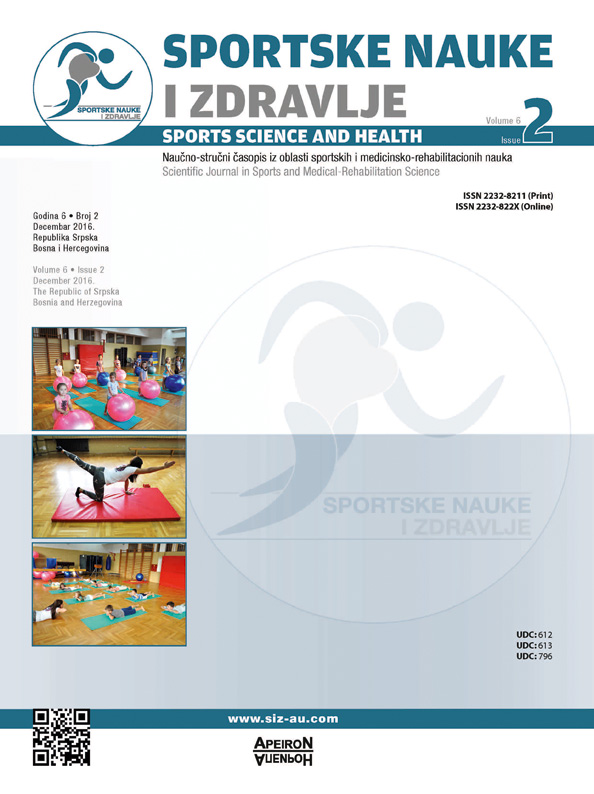Metric Characteristics of Tests for Assessment of Coordination Skills in Dance // Metrijske karakteristike testova za procjenu koordinacionih sposobnosti u plesu
DOI:
https://doi.org/10.7251/SSH1602087SAbstract
The research was conducted on a sample of 36 participants, students of the dance club “Gemma” from Banja Luka, divided as 18 dance couples (18 boys and 18 girls). The research includes participants of masculine and feminine genders, between 12 and 13 years of age that belong to the category of young juniors according to the categorisation of the Bosnia and Herzegovina Dance Association. The research validated metric characteristics of tests for assessment of coordination skills of the whole body and specific coordination skills in rhythm.
The main objective of the research was to determine metric characteristics of measuring instruments (tests) for assessment of coordination skills of young juniors in dance.
Based on the calculated metric characteristics of measuring instruments (tests) for assessment of coordination skills, it can be stated that almost all the tests assessing coordination skills have very good metric characteristics, because reliability coefficients are quite high and they range from 0.93 to 0.99. Given the high-quality structures of correlation matrices of items and their projection on the first principal component, it can be stated that all items of each measurement belong to one manifesting common space which indicates that the tests measured what they were intended to measure.
Based on the results obtained in this research, the recommendation is to use the applied tests for the purposes of diagnosing coordination skills in dance, as well as for programming the training process of dancers.
